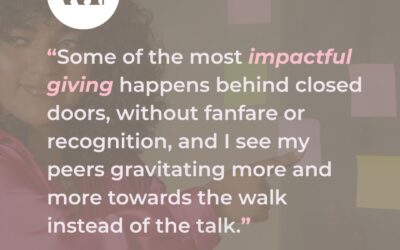Many of you know that the Women’s Fund of East Tennessee has championed the need for ACEs (Adverse Childhood Experiences) education, awareness, and training since becoming aware of this underlying issue affecting our young women and their ability to become self-sustaining.
Given the current pandemic, and the uncertainty surrounding just how long we will be encouraged to limit our time in public places, we want to take a moment to highlight some ways to reduce ACEs and toxic stress while at home. According to the article, Sheltering in Place: ACEs-Informed Tips for Self-Care During a Pandemic, published on ACEs Connection, there are “7 healthy, evidence-based practices to help regulate an overactive stress response.” Those practices include:
Supportive Relationships
Avoid loneliness and maintain relationships and connection using technology such as Zoom, FaceTime, and Skype to have virtual time with others. These tools can be used to host game nights, book clubs, dance parties and everything in between.
Sleep
Make sure you are getting enough z’s at night. It is important for your immune system and is crucial for those with any history of ACEs. Did you know that research has shown children who get more sleep are less likely to get sick, have better behavior and handle stress more evenly? Create a routine for going to bed and waking in the morning and stick to it!
Nutrition
Increased stress can lead to increased eating, but it is important to maintain self-control when our brains want to kick it to the curb. Resist the temptation to stock up on comfort foods and junk foods while you are spending more time at home. Be intentional about fueling your body for success with nutritious foods that will set you up for a more positive day.
Exercise
Physical activity aides in managing stress through the release of endorphins. According to research by the Mayo Clinic, exercise can even fight depression. Children who are regularly active have even shown a reduction in stress hormone levels. Now is a great time to ride bikes, hike and go for walks, as these activities are easy to do while social distancing.
Mental Healthcare
Sometimes stress and loneliness, especially during the pandemic, is just too much to handle on our own. If you feel overwhelmed, seek help from a professional counselor. If you do not have a mental health professional, or have trouble finding one, there are many free resources such as the Safe & Sound talk line for parents at 415-441-KIDS (5437) and SAMHSA Disaster Distress Helpline at 1-800-985-5990.
Mindfulness
Paying close attention to what you think and feel can help control impulsive responses to stress. Mindfulness exercises often involve deep breathing and meditation to bring relaxation and to center one’s overactive thoughts. While finding a quiet place to practice mindfulness may be more challenging if you are sheltering with your family, make it a priority to do so—even if it means a quiet corner in a closet.
Nature
Being in nature has been shown to have profound effects on both physical and neurological health. If you are able to access green spaces, given that some parks are closed for social distancing protocols, make sure to take advantage of those opportunities. If you cannot be in nature, just looking at scenes of nature can also be effective. Be creative—take a virtual tour of a national park or grow your own garden at home.
In the end, all of the above-mentioned practices are most importantly tied together with a good dose of self-compassion. The importance of being kind to ourselves, and having grace for the feelings and uncertainties we are experiencing, is crucial in the midst of our current circumstances.
For more information on each of the seven practices, visit the full article at ACEs Connection.



